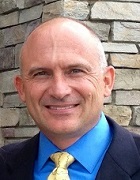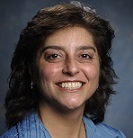The main goal of the field of Augmented Cognition is to research and develop technologies capable of extending the information management capacity of individuals through computing technologies. Augmented Cognition research and development is therefore focused on accelerating the production of novel concepts in human-system integration and includes the study of methods for addressing cognitive bottlenecks (e.g., limitations in attention, memory, learning, comprehension, visualization abilities, and decision making) via technologies that assess the user's cognitive status in real time. A computational interaction employing such novel system concepts monitors the state of the user, through behavioral, psychophysiological and/or neurophyiological data acquired from the user in real time, and then adapts or augments the computational interface to significantly improve their performance on the task at hand.
The Augmented Cognition (AC) Conference, an affiliated conference of the HCI International Conference, arrived at its 13th edition, solicits papers from academics, researchers, industry and professionals, on a broad range of theoretical and applied issues related to Augmented Cognition and its applications.

DYLAN SCHMORROW
SoarTech, USA

CALI FIDOPIASTIS
Design Interactive, USA